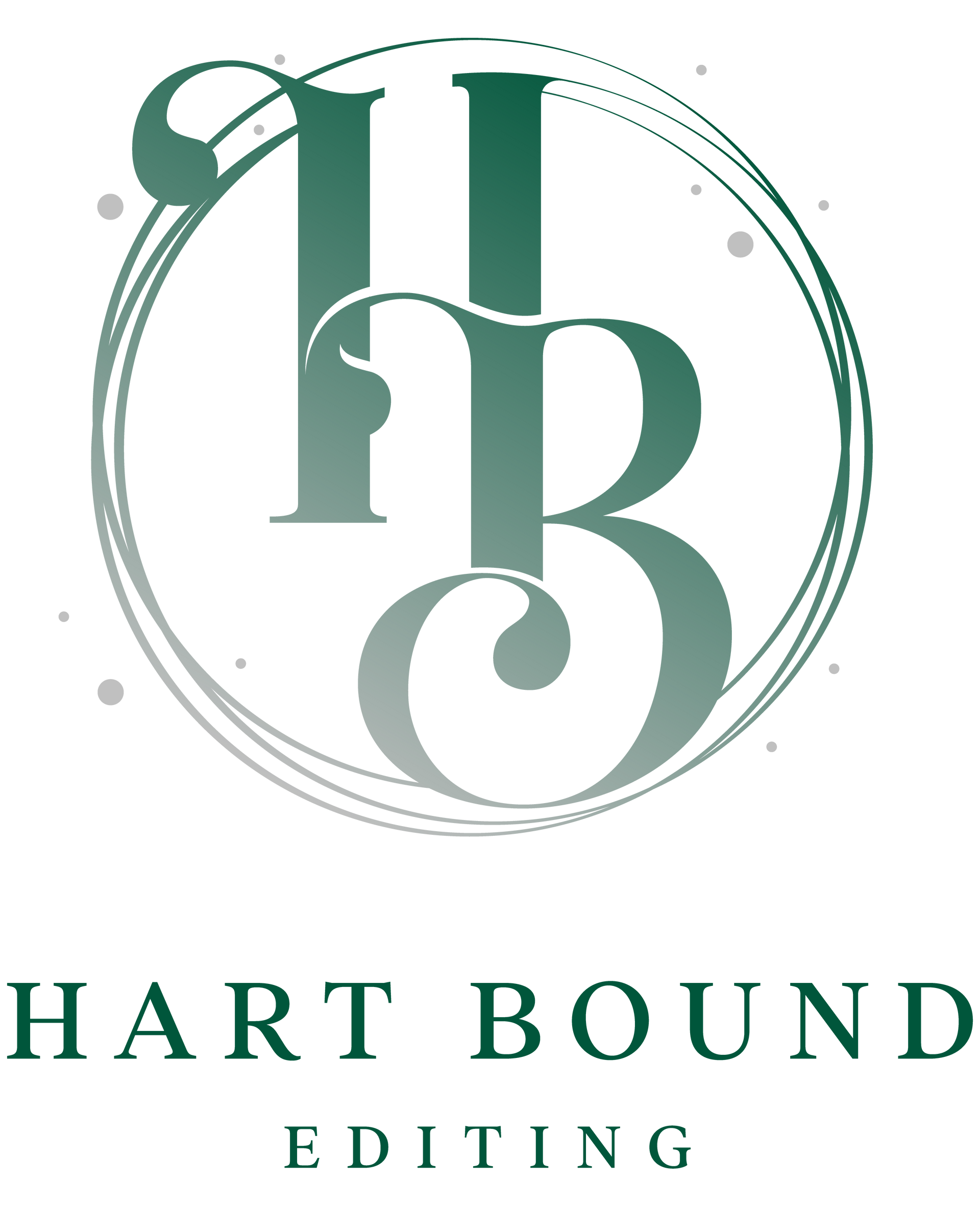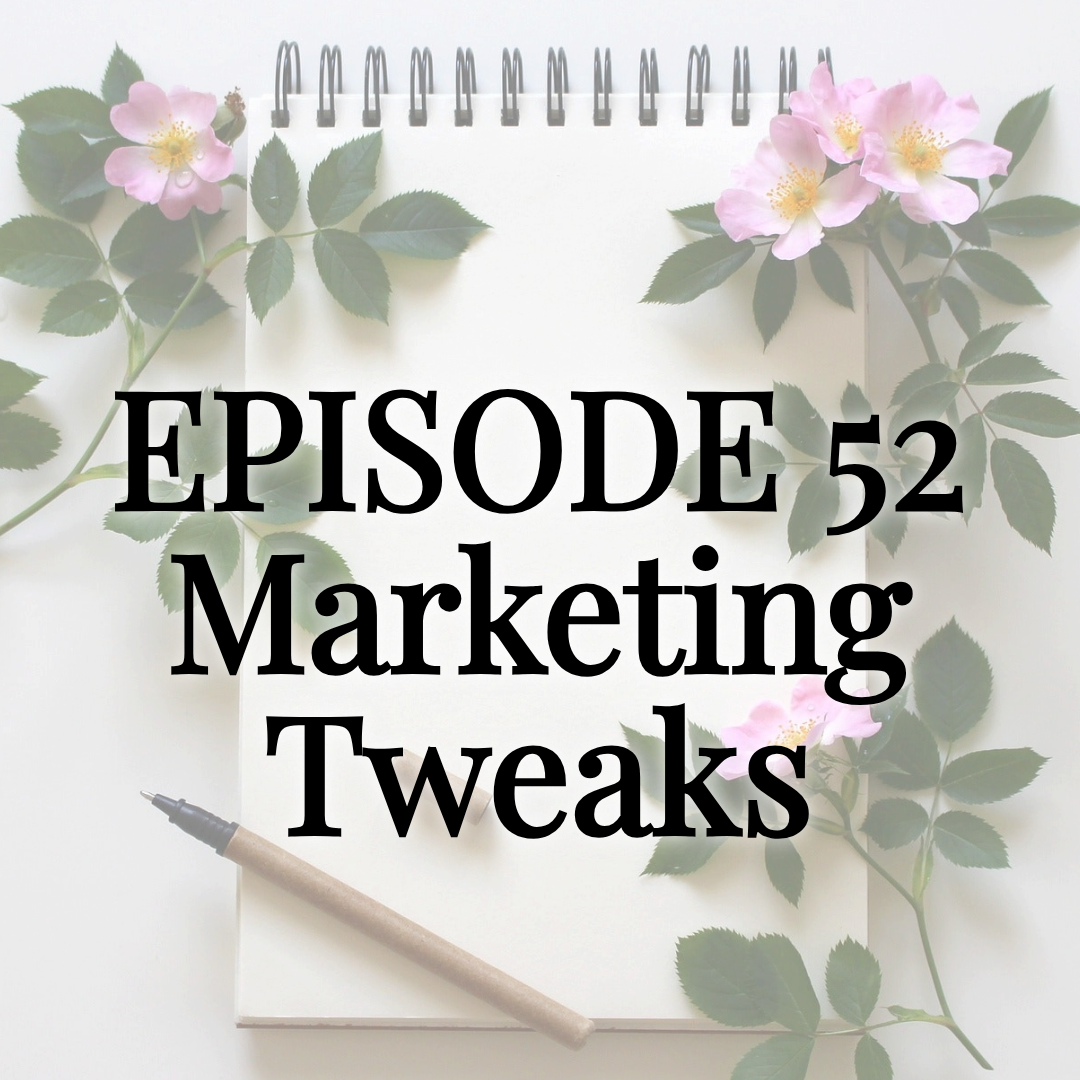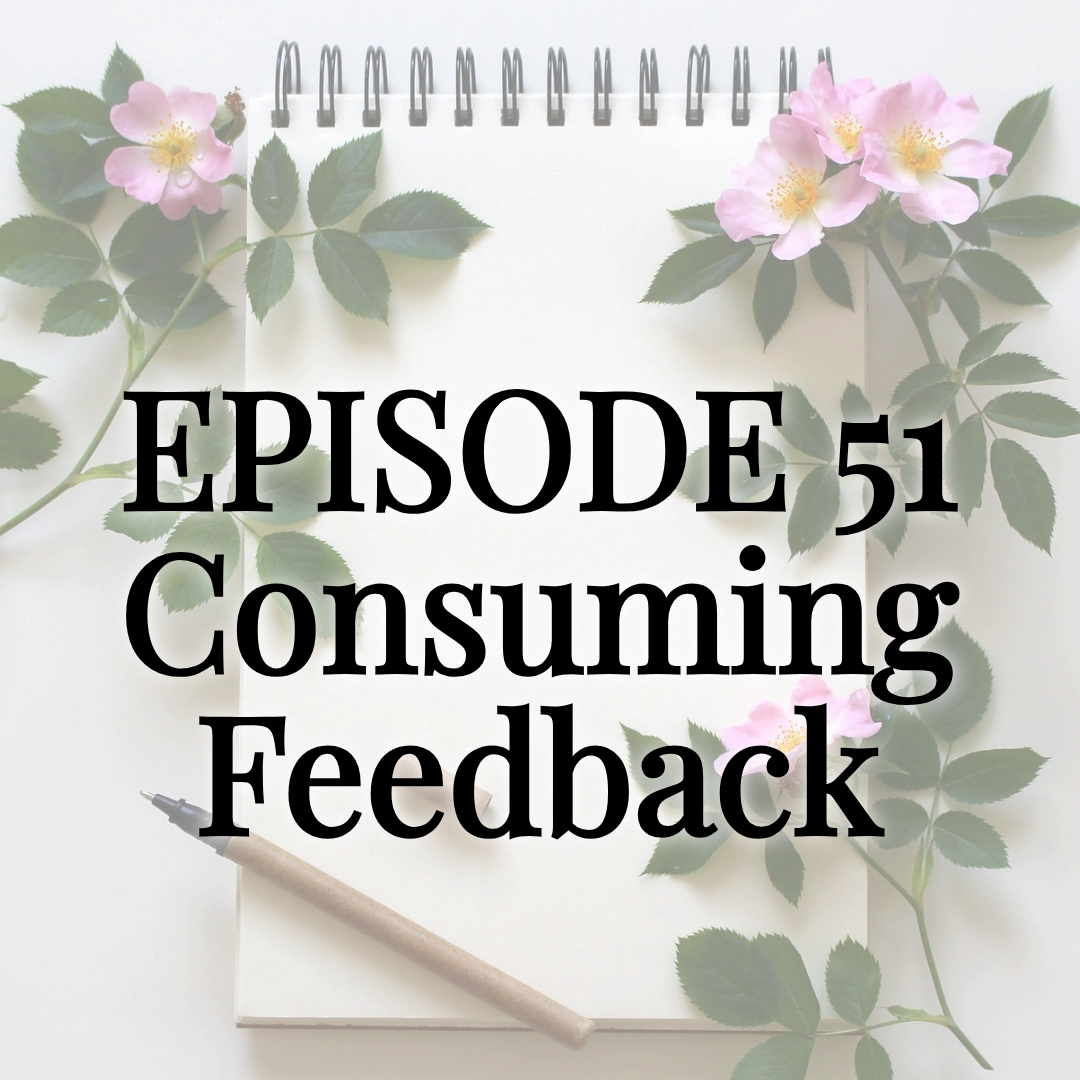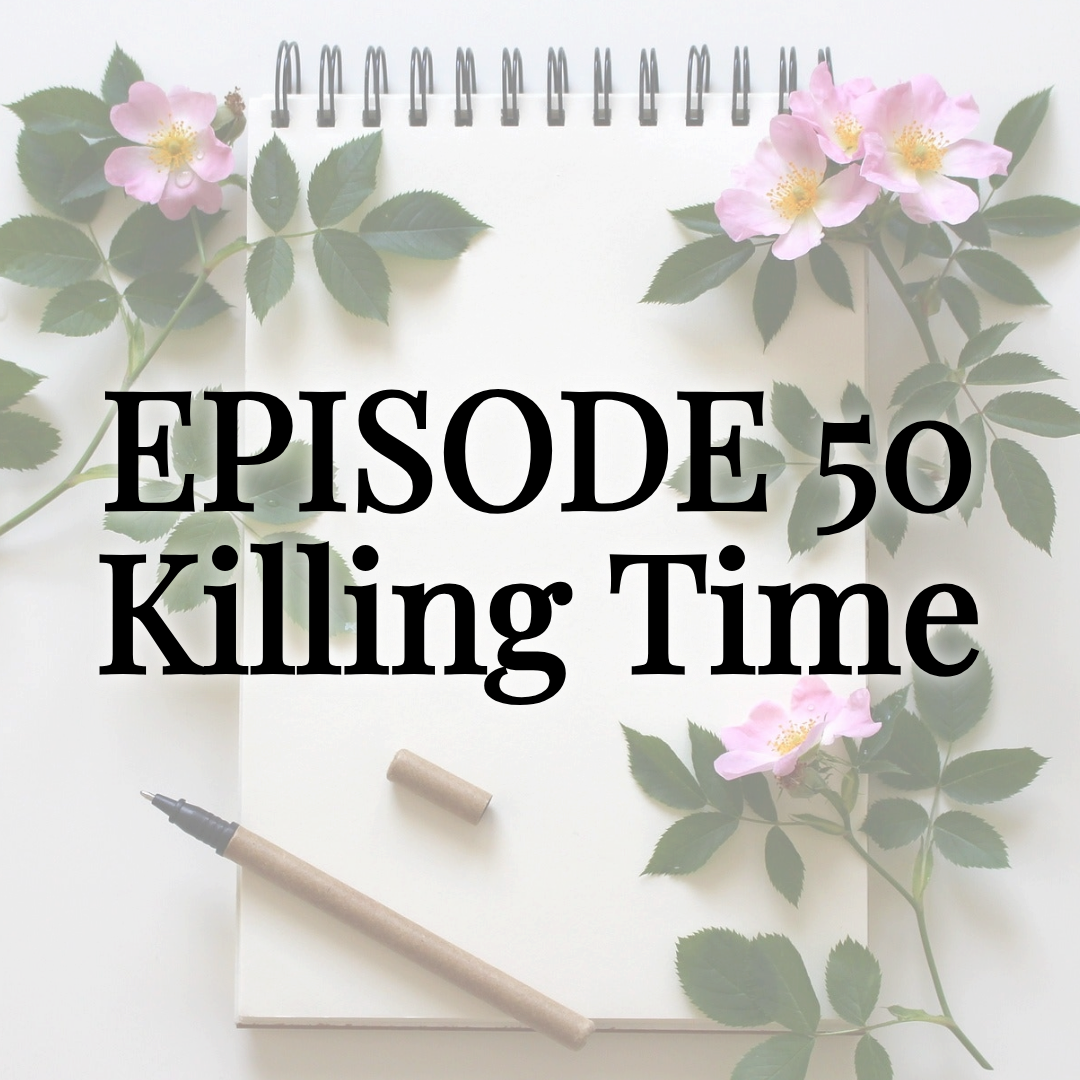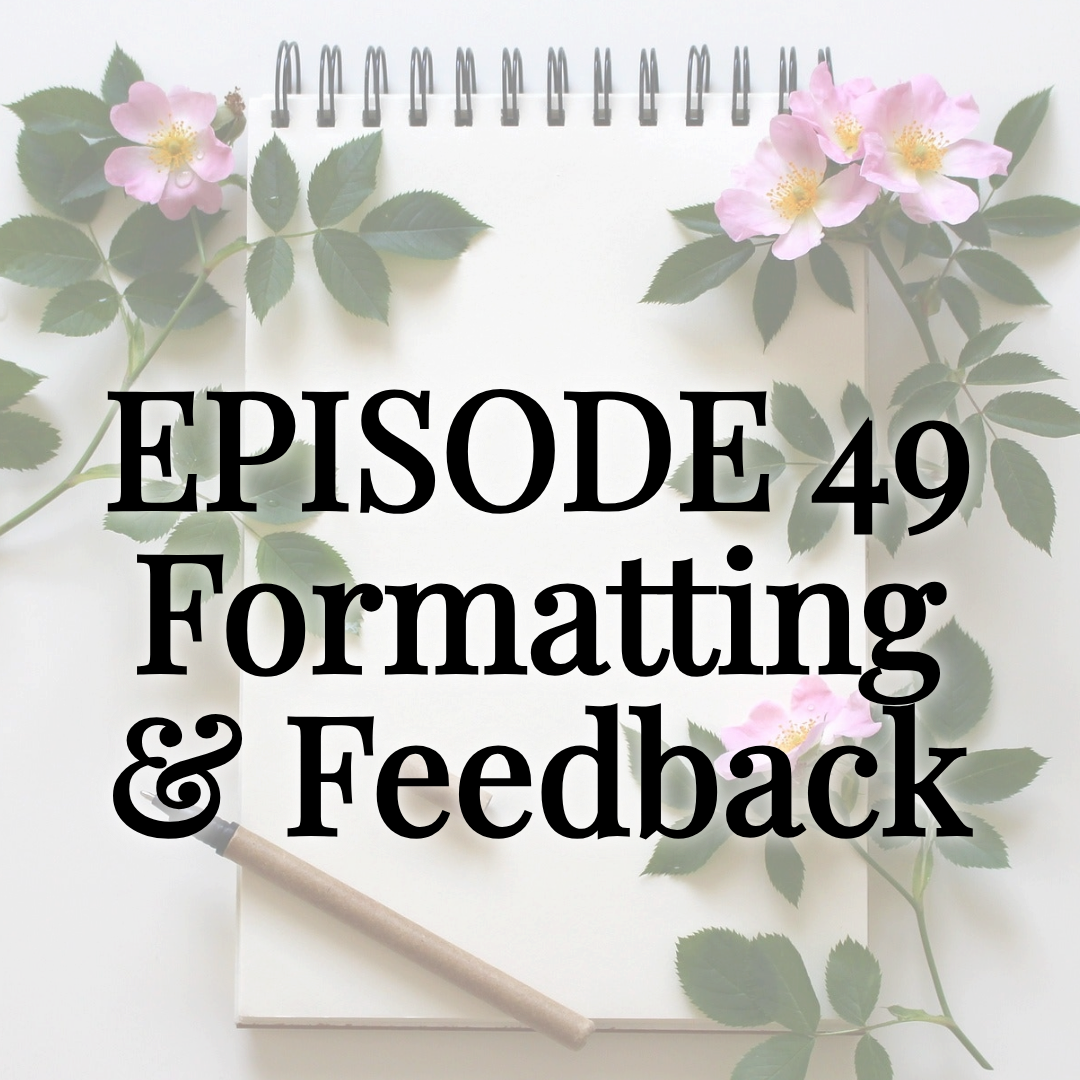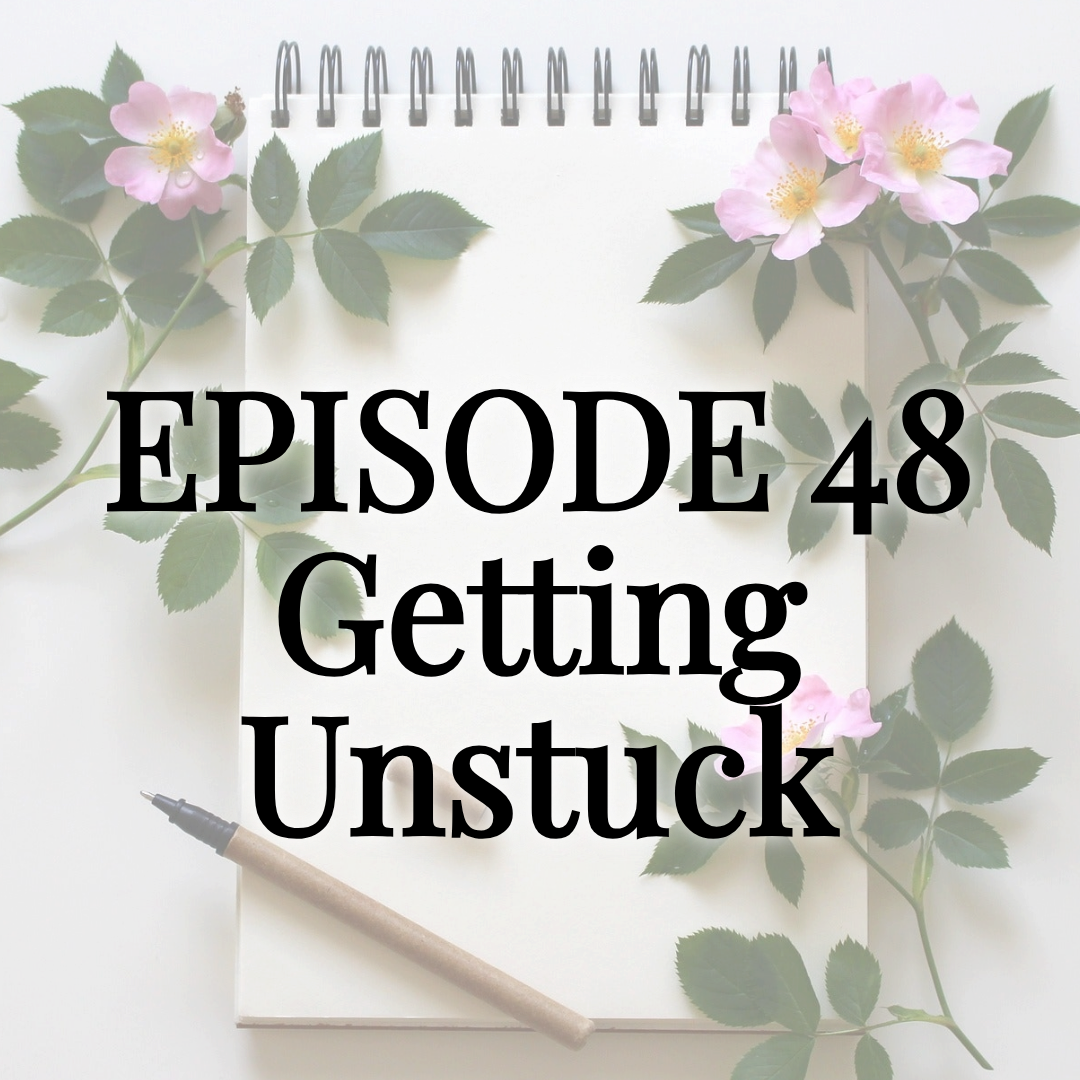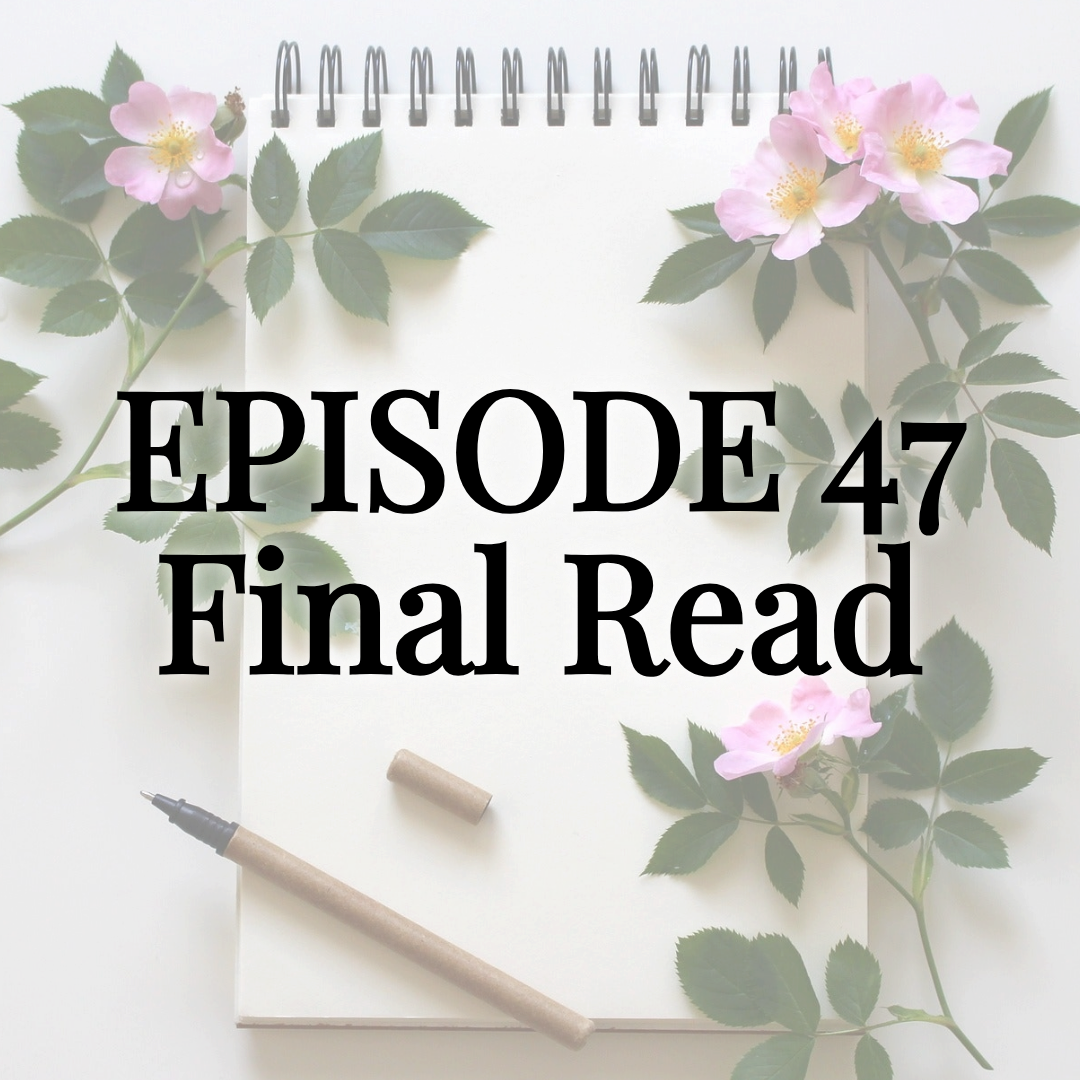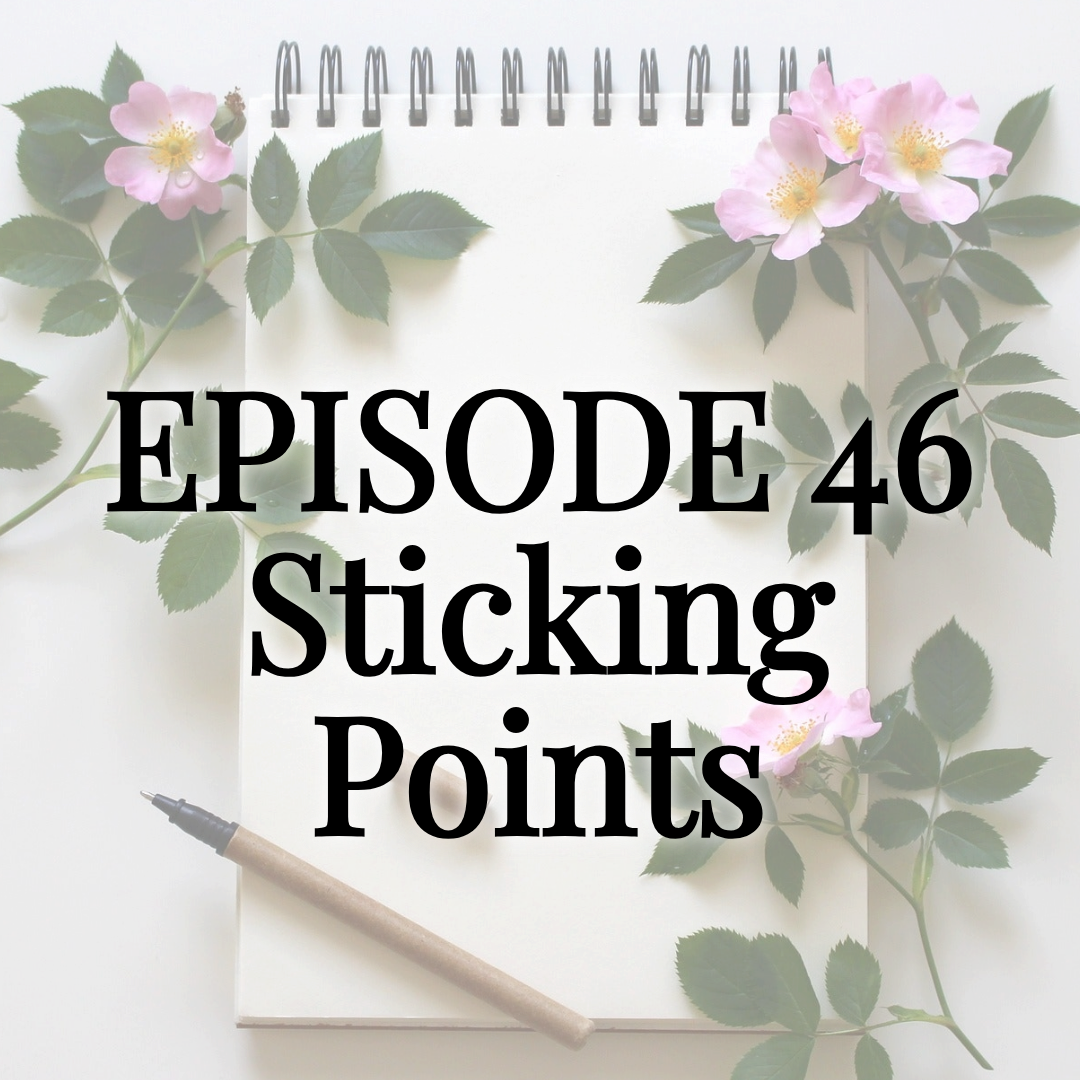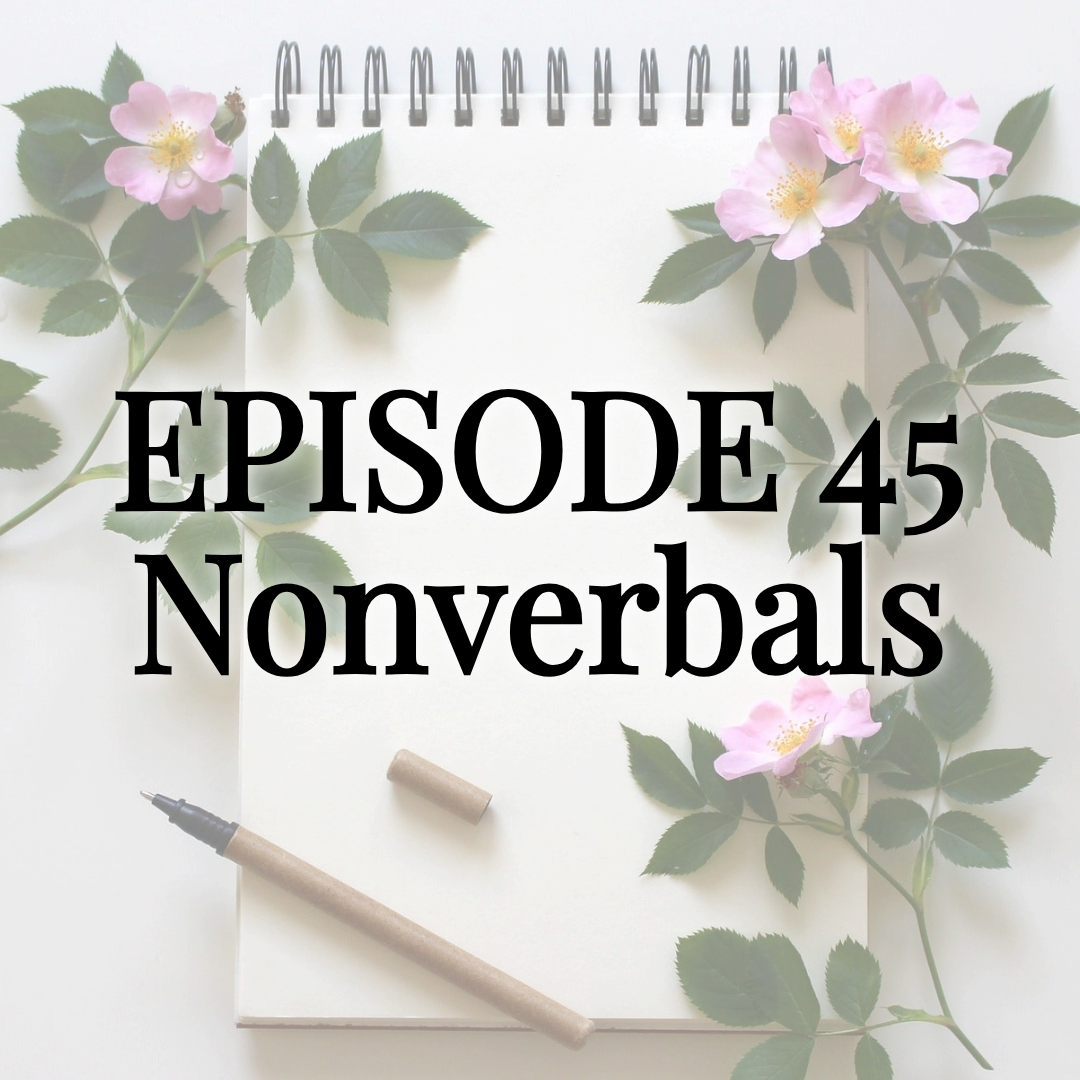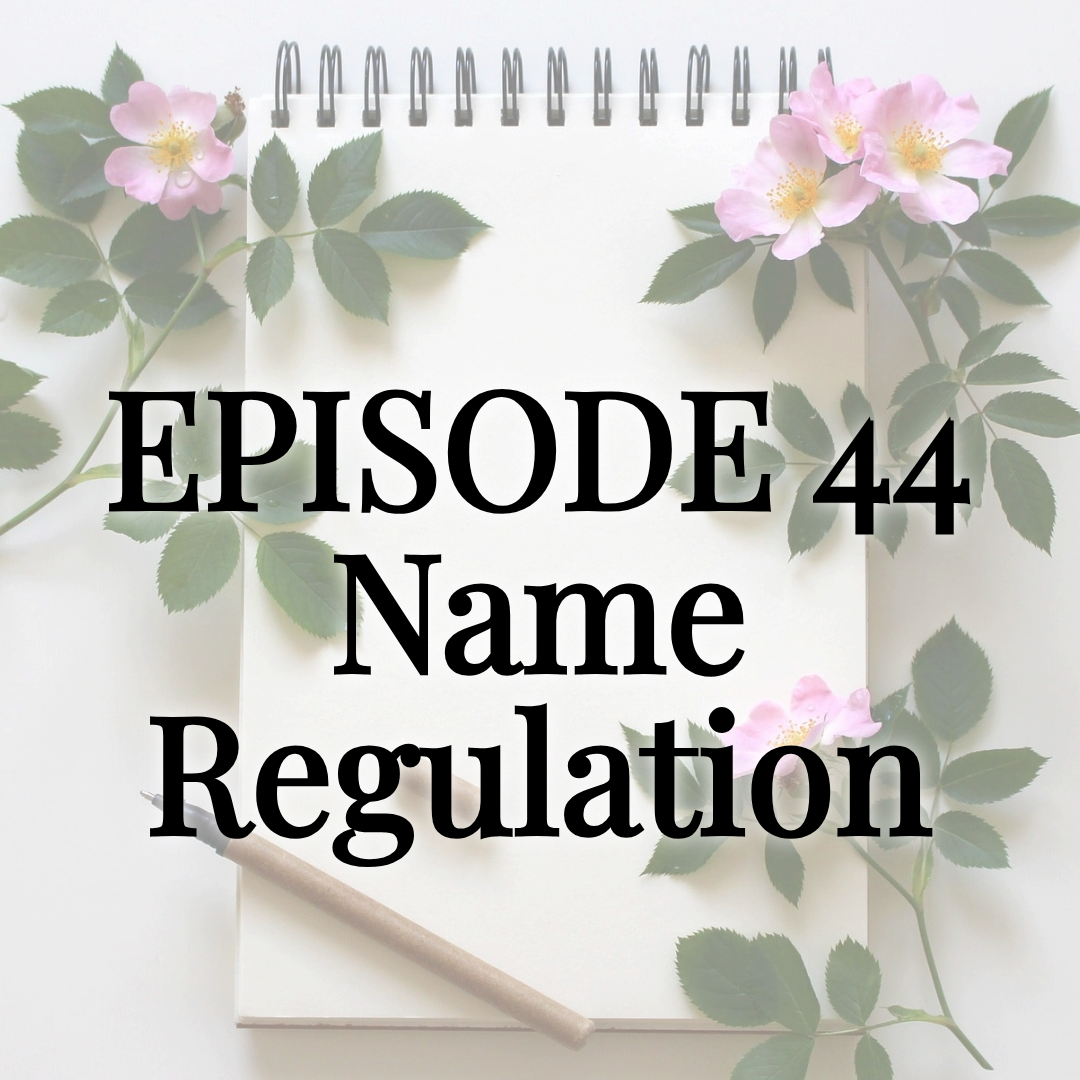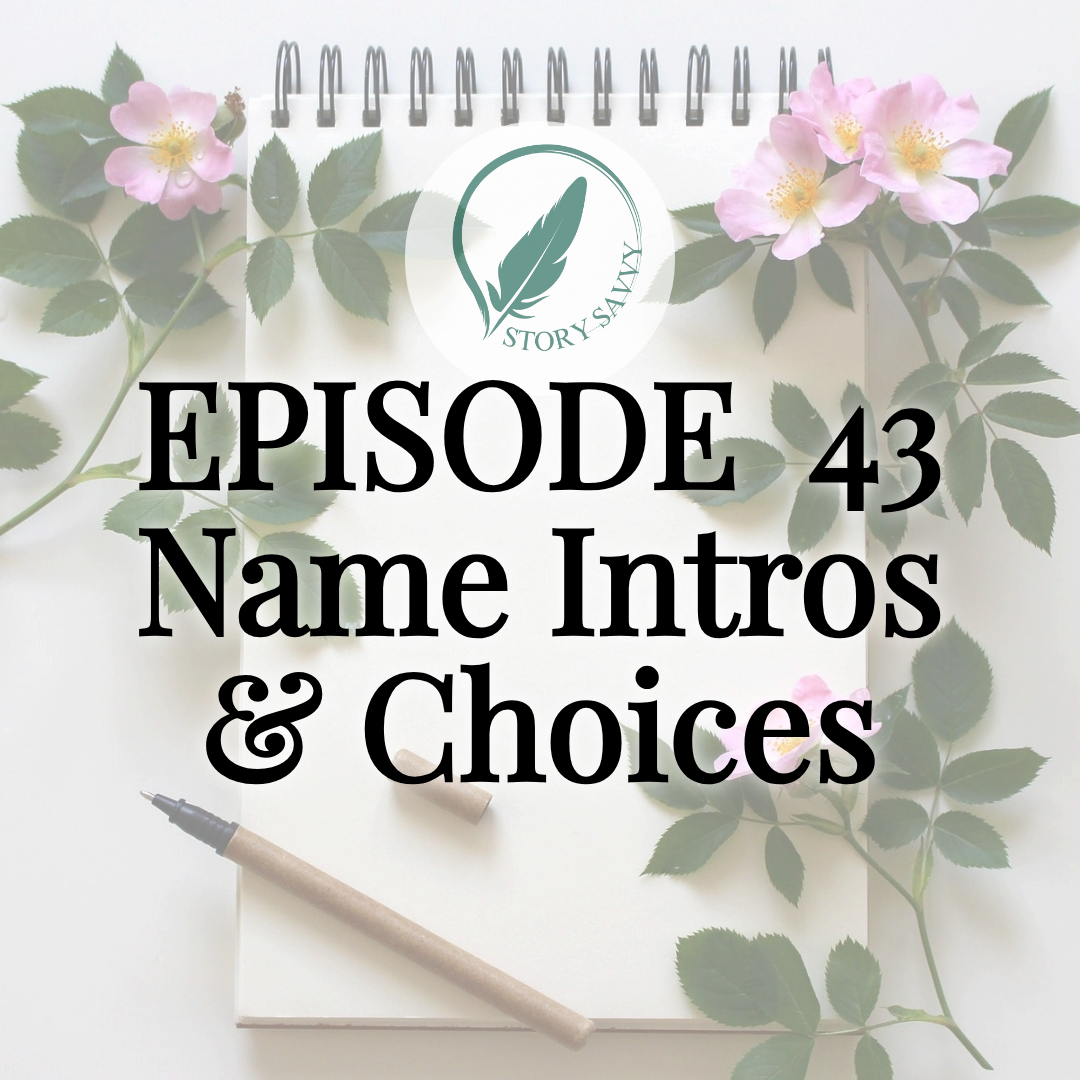Mental Health & Self Care: Story Savvy Self-Editing Episode 22
When the world is collapsing around us, but we need to self-edit...
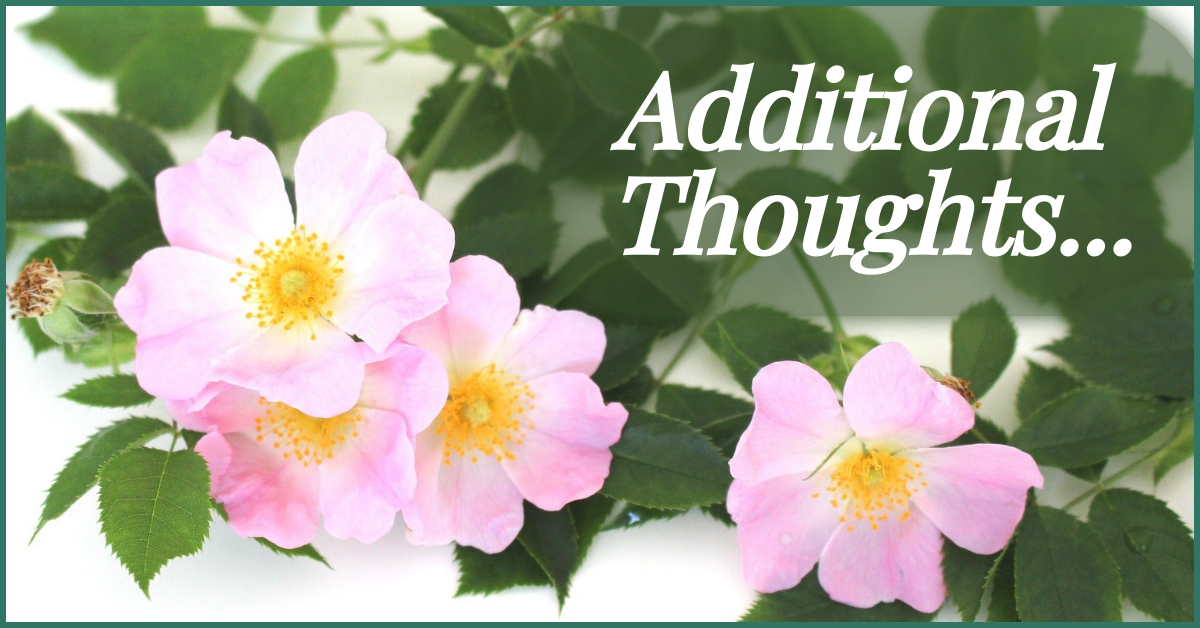
I apologize for my somewhat repetitive phrasing referencing "the state of the world." Hopefully this episode is still helpful to everyone!
I also just want to add a disclaimer that neither Agnes nor I are mental health professionals. If you are genuinely in crisis, please call your local crisis helpline, or a trusted friend or family member.
Episode 22 Overview:
Mental Health & Self-Care
"When mental health becomes a factor in our editing and other creative endeavors, how can or should we balance that with our goals and obligations?"
This week in the Story Savvy Series, we explore writing and emotional healing and mental health for writers. So, let’s join together as we discuss writer self-care. From burnout and perfectionism to grief and PTSD, developmental editor Rebecca Hartwell [hartboundediting.com] and author Agnes Wolfe [authorsalcove.com] discuss how to care for your mental well-being while editing your book.
Episode 22 of the 52-Week Story Savvy series offers compassionate insight for writers navigating emotional challenges. Whether you're overwhelmed by deadlines or struggling to touch your manuscript after loss, this episode validates your journey and provides real, usable advice.
They also discuss:
- How to know when to step back from editing
- The impact of ADHD and PTSD on the writing process
- Self-imposed deadlines vs. mental wellness
- Healthy community and support systems for writers
- The surprising power of changing small story details for healing
Whether you're self-publishing or traditionally publishing, this episode is your reminder that your well-being comes first—and your story will wait.
Recommended Resources:
Authors’ Alcove Membership Community –
http://authorsalcove.com
Book Giveaway –
http://authorsalcove.org
See you next week for episode 23: Plot Twists!
Episode 22 Transcript:
Mental Health & Self-Care
Rebecca Hartwell: Hello, and welcome to the Hart Bound Editing Podcast. This is Episode 22 of the weekly Story Savvy series, where we tackle the 52 biggest self-editing topics and tips to help you make your good story great as an aspiring author asks me, a developmental editor, all of the questions that you have wanted to. We have covered a bunch in this series so far, including last week's episode with Jenna Doyle on self-editing to land in your word count sweet spots.
Today, we are going to do something a little bit different and take a break week in this series to talk about mental health and self-care during the self-editing process. The hope with this episode is simply to validate, and maybe offer some tools, to any of our listeners who are facing burnout, or pessimism, or other mental health struggles, kind of how you and I both are right now in our lives. And joining me to ask all of these questions and discuss this topic with me is my regular co-host and my friend, Agnes Wolfe, and I'm so happy to have you back on the show.
Agnes Wolfe: Hi, I am so glad to be back. And as she said, I'm an aspiring fantasy author who hopes to release her first middle grade fantasy actually next year. And that's actually part of why I decided to do that—was because of mental health. I had a family tragedy happen, and it has really affected me. And she (Rebecca) has been gracious enough to allow me to take this time off. Thank you very much. But anyway, I'm really glad we're talking about this today, as I think this topic is—for us—important, but also for all of our listeners as well.
Rebecca: Absolutely.
Agnes: Anyway, thank you so much for having me on here. This topic most excites me because I get to talk to you not as an editor—though I am sure you have insight from that as well—but also as a fellow writer. Being someone whose diagnosis has spanned from PTSD, Major Depressive Disorder, Generalized Anxiety Disorder, ADHD—and yes, I do think that although that is not technically a mental health diagnosis, it definitely plays a huge part in my mental health—and I also have a multitude of inflammatory diseases, and I think that also is a huge impact on mental health as well. So, this topic is very near and dear to my heart. And I know you were the one who had mentioned we should add this topic, so it must be near and dear to yours as well.
What made you to decide to bring this up to me and discuss this in our series?
Rebecca: Yes, so mental health is just kind of a topic that's on everyone's mind right now.
And my personal, sort of, palette of those is definitely depression, I've struggled with suicidal ideation in the past, lots of anxiety, and PTSD. So, I feel like addressing this now is really valuable for where we are in the wider world, but also, I find that about halfway through any given project is where I start feeling the most discouraged. So doing this topic about halfway through this year-long series also feels like it's appropriate—and hopefully helpful too—to anyone who's working through their self-editing with us.
Beyond that, most of the writers that I'm talking to in my life, in my profession right now, are really struggling with all-encompassing burnout from the state of the world. And that obviously is going to affect all of our creative or productive endeavors, like writing and editing.
Lastly, mental health is just a big focus in my life right now, and it was starting to feel, over the last few weeks, like I kind of needed to talk about this with you and with our clients before we could really move on to other topics.
Agnes: So, I know I struggle a lot with mental health issues, as I've already mentioned—especially depression, which is exacerbated by ADHD and just everyday life. During a depressive episode, I have this huge catch-22, and I don't think that I'm unique. Usually, I am too depressed to feel motivated to write or self-edit—in this case, because I am done with the writing process, I'm self-editing or anything. And I'm going to be honest, after my significant family tragedy, I have not touched my book except for twice in this past week. But I also know that if I write, then I begin to feel better. So, it is a catch-22. Like, if I write, I will feel better, but I don't want to write because I'm not feeling good. So, for you personally, when you have gone through your down spells, do you take a break from writing, or do you force yourself to just write? What do you suggest in general?
Rebecca: Yeah, so I've definitely been there, and I can't say that I have a right choice in response to that by any measure. But I usually respond in one of three ways when I'm in a depressive episode.
Option one is absolutely to take a step back entirely. Especially when so many of the factors causing the slump are external, like they are right now in the world. I feel it's really valuable to remember, at least for myself, that rest is resistance to whatever is happening in your life that's hurting you, and to listen to what your creativity is asking for even if that's a break, or total rest, or reading to remind yourself that stories are fun.
The second thing that I will sometimes do which I can reasonably recommend to others if it sounds like a good idea is to find some way to keep writing or otherwise working on stories in a silly way that has nothing to do with whatever I'm really working on at the moment. So, for example, right now in my life, I am working on a silly Viking series that has zero pressure. And I am just brainstorming it, and I'm reading in the genre, and I'm coming up with funny little ideas because that's where my creativity is landing right now. And it keeps me engaged with my identity as a storyteller and keeps those mental muscles in shape, to some extent, in a positive way that doesn't have whatever burden I'm feeling with my official project at the moment.
The third option for me is definitely not a healthy one, but our listeners are probably mostly adults and can make their own decisions. But sometimes, when I'm in a really bad place mentally, it's amazing how much writing productivity I can get done as an outlet for the pointless anger of my depression. It never helps the depression. It does not get me closer to coming out of the down spell. But man, it can feel really, really nice to look at the finished outline, or a bunch of checkmarks on my self-editing list and know that I got something out of the shitty headspace. That it wasn't entirely pointless.
Agnes: So, I had kind of reflected on your second one where you said about writing something silly, and maybe because mine is a little bit more on the silly side, I actually ended up writing something very serious while I was struggling. And so, for me, it's just kind of that switching of gears—and it's actually, I didn't think about it at the time, but it's actually a mental health story that I'm working on. It's an adult story. But I think sometimes even just switching gears can help you. Like if you're in a really silly space, then go to the—you know—like swapping.
But speaking of creativity and all of that, I do think that there is some truth to creativity and mental health struggles and how they often go hand in hand. And I think there are a lot of reasons for that, such as people who went through childhood trauma may have dissociated or daydreamed a lot in order to get through that trauma. Also, I think that people who have gone through mental health struggles—my chair is squeaky—anyway, I think that people who have gone through mental health struggles become more compassionate and understanding, and I think that actually fuels some of our writing as well. Do you feel that mental health issues can actually be an asset to writing or even self-editing?
Rebecca: So, while I can't argue with my personal experiences with that and the common testimony to that in the writer ethos, I personally think that it's dangerous to romanticize mental health struggles. Especially as authors.
The idea that depression is this creative muse is deeply ingrained in our literary mythos, but I've personally found that to also be dangerous. When that belief is held, it can be too easy to avoid seeking our own health, and happiness, and healing because we hold our creative outpouring—or literary legacy, how you're going to be remembered through your stories—in a higher value than those self-care things, even if it's subconsciously.
So, I think that if you have that kind of background or deal with those ongoing struggles and want to use that in your writing, I highly encourage you to do so. But I would also warn everyone away from seeking trauma, or mental health spirals, or avoiding treatment, rest, support, healing, anything like that, in pursuit of creativity or better writing.
I'm sure a dozen literary heroes of the ages will turn over in their graves to hear me say this, but your life and happiness are more important than your story or stories. If you have to pick between them, the world is an infinitely better place with a happier, healthier version of you and none of your books. And when you're thinking about that relationship, I really, really want everyone to hold onto that.
Agnes: I really agree with you. I agree with you 100%. And I know that that's something that we talk about—is that I would rather you deal with your mental health than us push through even the self-editing. And we're probably going to talk a little bit about that in just a little while.
But I want to make sure we're staying on task of what we were going to talk about. And so, one of the things that I have run into with interviewing, I've interviewed well over 100 authors, all from nonfiction, fiction, fantasy, fantasy and the like. I think 30 of them have been through the fantasy realm. But the thing that I hear the most frequent, that people struggle with, even people who do not struggle with mental health issues, is imposter syndrome. In fact, I can say the whole reason I did not truly work on my book until I was in my 40s is 100% because of imposter syndrome. Like, I didn't think that I was worthy of writing a book.
So, is that something that you have struggled with? And how have you experienced it as an editor talking to your people, and how do you push through those feelings of self-doubt?
Rebecca: I have very much experienced that—and not just in the writing, but in plenty of different arenas in my life.
There are a few thoughts that have really, really helped me, and I can't say that they'll help everyone, but if someone has a personality and mindset like mine, hopefully it will.
First of all, was this phrase I probably got from a meme on Facebook that just said, "Anything that's worth doing is worth doing poorly." And that was a game-changer for me. Because we've all heard the expression, "Anything that's worth doing is worth doing well." But that puts so much pressure on it—of, “well, if you're going to do it at all, you should do it 100%. You should do it the best you possibly can.” And that can be exhausting and really, really discouraging. So this mindset of “anything that's worth doing is worth doing poorly,” gives so much more grace. Because, you know, taking care of your body is worth doing, even if you can only do a shower and eat one vegetable in a day. It's still worth doing, even if you're kind of shitty at it.
And that very much applies to writing. That applies to self-editing. That applies to publishing and networking with other authors. If it's worth doing, it's worth doing at whatever level you can currently do it at even if, to your perspective, it's kind of poorly. So that was one of the biggest tips for dealing with imposter syndrome that I ever found.
Another one is to take the financial, or accolades, or any other success markers off the table until you've already done what you can with whatever step you're working at. So, if you are planning a book, don't think about, “Oh well, this isn't a Nobel Prize-winning book,” or “This isn't a bestselling New York Times list story idea.” Take that off the table. Finish outlining. And then you can maybe spend a day thinking about those pressure aspects and revising to meet them. But if your imposter syndrome is sitting there telling you, “This isn't good enough for…” or “This doesn't qualify for…whatever”—fill in the blanks—then taking those off the table and deciding that you're writing for the sake of writing, or you're going to publish so that three people will buy and read your book, then that can help a lot with embodying what you're trying to do and how you want to identify through this process, and getting it done rather than sitting there stressing about it for ages.
And then, legitimately, one of the best pieces of advice that I've got is going and reading bits of the worst traditionally published books out there—according to your friends, according to the internet, whatever you can find—and then read through them and cringe and laugh and judge your way into a mindset of, “Jeez, if this blowhard asshole who writes like a misogynistic ten-year-old can get published by a Big Five publisher and get hundreds of reviews that aren't one-star… I definitely can.” Because boy, that is a game-changer.
Agnes: My husband actually has a particular author that he always tells me whenever I feel discouraged. He goes, “Well, it…” (I'm not going to say the name), “if he can be published,” he goes, “I think that you’ll be just fine.”
And it is somebody who’s very, very, like—I don’t want to say it because I’m afraid it’ll be somebody’s favorite author or somebody.
Rebecca: You’ll notice I didn’t name any names, but they’re out there, and you can find those lists.
Agnes: I will say this—and maybe this will be a clue to if you love him—is he uses the word ‘burgeoning’ a lot.
Rebecca: It doesn’t ring a bell for me, but it might for one of our listeners.
Agnes: I’ll tell you afterwards. How about—okay.
And this kind of goes along with what we just talked about—so one of the mental health topics I think we should talk about is perfectionism. Because I know when I was younger, perfection—I was a huge perfectionist. I was a straight-A student. And I actually will tell people this: that one of the main reasons why I am not, like, pro traditional school—schooling—is because I was a perfectionist and I got straight A’s. I got straight A’s in college. I got straight A’s in high school. I was a perfectionist. And I don’t think that’s healthy. So that is my perspective. As I’ve gotten older, I have been able to relax a little bit and realize that, you know, I don’t have to be perfect. I can be good enough.
Do you feel that perfectionism has affected you in your own writing, and do you see this happening in any of the writers that you work with?
Rebecca: For sure. I didn’t go through a traditional schooling route, but I was still a perfectionist, absolutely, growing up. That applied to dance, that applied to the horse shows that I would do, that applied to craft projects, embroidery—everything was perfectionism.
So, in my own work, it was largely helped—that perfectionism block was helped—by the same things that helped my imposter syndrome. As well as reminding myself constantly that there was no way to get around the fact that I would improve as a writer over time. And writing a million words was kind of the first really notable hurdle in that, which I just couldn’t cheat. I could not achieve that on my first 125,000-word book.
So, I also promised myself, based off of that, that on the ten-year anniversary of my first series starting to be published, I could do a relaunch with totally revamped books, new covers, everything like that. I have no idea if I will follow through on that, but promising myself that I would have permission from myself, and I could put in the work, and once I was a better writer I could rewrite this first story that meant so much to me, allowed me to let go of my work knowing that it was as good, as close to perfect, as I could make it then, as I can make it now. Even if I could have made it more perfect if I’d kept picking at it for another decade before publishing it.
As for clients who I have seen struggle with aspects of perfectionism, there has been a huge variety in exactly how that has shown up in my interactions with clients. So, I’ll just offer some random thoughts based on a couple that come to mind.
First, if you think your book is perfect, I love that for you. However, never show it to another human being if you want to maintain that. Definitely, definitely don’t ask another writer or a professional editor or anyone to critique it for you, to give you constructive feedback. They will find flaws—sometimes many flaws—and having a mindset that you have already perfected it dooms you to have a very bad time with that experience. One of the authors that I critique-swapped with very early on, long before I started professionally developmental editing, really deeply struggled with this. And I often wonder how on earth they coped with the reality of getting book reviews as an author after you publish. It is impossible to release a book into the world and not have people offering opinions. And they are not all going to be favorable.
So, in that aspect of perfectionism, you really, really need to accept that perfect is not possible—because everyone is an individual who will bring their own perspective and own opinions to the table.
Second, yeah—basically no round of editing, be it self-editing or professional editing, can take a manuscript from rough to perfect. You can only ever aim for a solid and noticeable improvement, and then do another round, and another round, and another round until the diminishing returns on the time and energy spent doing the next round tips the scales into “okay, this is good enough, let’s wrap it up,” territory. This wasn’t necessarily something that a client of mine struggled with, but something that I had to figure out in my early self-editing and in my early professional editing days. You really do sometimes have to clear away one whole layer of issues before you can see the next layer of issues beneath that clearly enough to address them. And that’s okay.
Lastly, on this particular topic: perfect really can be the enemy of good. I’ve had a few clients deliver perfectly formatted manuscripts without a single typo, omitted comma, or grammar error, where every single potential plot hole was very carefully explained and patched in minute detail. And they’d been working on this piece for decades. But the plot fell flat. Or the world-building was boring. Or the character arcs were really off or uncomfortable. They spent literal years of their lives making every line of this story perfect without putting any or enough thought, and effort, and time into whether the story was good. I promise you that your line editor, your copy editor, your proofreader, your ARC readers will help you catch any typos or wording issues that readers truly care about after publication. What everyone needs to put a lot more focus on during the self-editing stages—especially as a first-time author, especially if you’re early in this self-editing process—is making sure that the story you are telling works and is good, rather than making sure it doesn’t have any typos. And a lot of the times, if you’re a first-time author and you’re working on this stuff, good is good enough. You are not going to reach perfection until you’ve written—whatever—a million words, ten books, you’ve gone through three different developmental editors and found your perfect copy editor and all this kind of stuff.
So: good is good enough.
Agnes: And if you think about—like, so I—growing up, I was a painter, and one of the things that my aunt, who was my paint teacher—I don’t know what the name of that is. An artist teacher? I don’t know. But anyway, so she was my paint teacher, and one of the things that she had said was that there's no mistakes in art. And I—you know, obviously there are mistakes in writing and that, and such—but I think that what her point was is that sometimes, sometimes what you see as a mistake ends up being something that brings value to it.
And like, I love hearing—you know, I’m a very—I’m a Potterhead. And I love hearing, like, the Harry Potter mistakes and those sorts of things—and the Lord of the Rings mistakes too. Because those things are kind of what endear me to actually want to reread it.
And so I think that sometimes those things that you’re like, “Oh my goodness, I can’t believe that I had this plot hole and I published it,” it might actually be something that other people might find endearing and be like, “Oh my goodness, I can’t believe I did not think about that the first time I read it, but the second time I read it, I saw it.” You know? That’s just a thought.
But going back to the questions, I know that one of the big reasons why I, um…
So I had decided that I wanted to be published by September 13 this year, which—there is no way I could possibly have done that, even if my—even if my dear family member had not passed away. And part of the reason for that is because I started to experience a lot of burnouts even before he had passed away. And so, I know that I needed to give myself a full another year.
So, my new date is September 13th of next year, which—it’s my mom’s birthday. It’s a Sunday, though, so I don’t know if I’m keen on publishing it on a Sunday. But my mom has been one of the huge encouragers in my life. But I… I started to experience a lot of burnout.
And have you noticed this happening in your own life, and how have you guarded against it?
Rebecca: I have burned out hard on a regular basis, and I do not have an answer for you.
The best I can offer is to refer you back to my answers to your second question of, you know, trying deep, intentional resting, finding a silly little side project, or keeping, you know, harnessing the power of spite, essentially. But seriously, if any listeners are struggling with burnout, I’m not the person who can help. I suggest reaching out to friends or family who you trust to give good advice. Go read some Brené Brown on the topic, or—if you can afford to—talk to a therapist. But this particular writer and editor is right down in the mud with you, and I haven’t cracked that code yet.
Agnes: So, I know one of the things that I have been told by my husband that has kind of helped me through burnout is he’s always asking me, “Is this a deadline or is this a self-imposed deadline?” And most of my stuff is self-imposed deadlines. And I find that I think I push myself too hard, and I think that’s somewhat of the perfectionism in me. And so, I adjust dates. So that’s why I adjusted my date to September 13th of next year—is because I still wanted that September 13th. And that gives me a whole ‘nother year to finish editing, find book cover artists, and do all of that fun stuff. That gives me plenty of time. I don’t have to rush. And then I can—I don’t have to, like—I can still do this. I can still do other things. I don’t have to let go of anything as well. But back to, like, not just burnout but, like, you know, generalized mental health stuff—if we were to—do you have any advice for dealing with larger or more generalized mental health stuff, like depression, anxiety, and, like, when it comes up, how it affects our work or us as a writer?
Rebecca: Yeah. So apart from my—my little soapbox about not romanticizing depression in the writing world—and as someone who very nearly didn’t finish my first book due to suicidal stuff—my thoughts are essentially these:
First, listen to your own body and emotions over any outside advice when it comes to your creativity and your mental health. Is the escape of reading, the organizational satisfaction of outlining, the flow of drafting, or the sense of accomplishment from self-editing easing your burden? Making everything a little bit easier to deal with? If so, amazing, wonderful. Lean into that. But only lean into that as long as it continues to feel that way. If it isn’t feeling that way, or stops feeling that way, experiment with how you can adjust your approaches or your processes to accommodate where your mental health is. Set your daily word count lower or make it a weekly word count goal instead. Find a totally different approach to your work with more organization or more chaotic freedom. Whatever is going to feel helpful to you.
The important thing to remember is that what you need right now is not what you will need forever. However you adjust your life and your work right now—when things are bad—is temporary. Adjusting your creative approach and/or listening to and respecting your needs for a break are not major life decisions. They are not deciding that you’re now going to be a lazy writer, or you can never achieve your dreams, or anything like that. They are simply deciding that this week, metaphorically, you are going to take the bus to work because your knee hurts. And if you stop walking to work for a week or two until it stops hurting, you will be back on track to keep walking to work every day after that and reach whatever steps-per-lifetime goal you have in that.
Agnes: Another topic of mental health that's really near and dear to my heart is—because I have an official diagnosis of it—I do think that it's… it… I have worked through a lot of it, but that is PTSD. And I do know—I wish I had your… because normally your book is right here. I like could grab it because… Oh! And the reason why it is usually right here when I’m at home (because I’m at a hotel right now) is because, starting June 1, I am starting my Summer Book Giveaway, and I am going to give away—I have not purchased the one that I’m going to be giving away yet, but I have my own copy that will be right here—that she signed. But I will be giving away her book, A Heart of Flame.
But I do remember that when I interviewed you for that particular book, you did talk about how writing it was both really triggering to your own PTSD and yet also super cathartic and therapeutic. So, I figured that was kind of worth addressing from a self-editing advice standpoint. What would… what are your thoughts on that?
Rebecca: So, I totally agree—and I'm delighted that you're going to do the giveaway!
But yeah, it was super triggering for me to write that first book in my series, and to a slightly lesser degree, the second and third. But it was also incredibly healing to process through those topics and interactions and aspects, and to feel like I was sharing my experiences in a way that might help others. So having gone through that process, my advice on that is roughly this:
Number one: It's okay not to want to write about topics that trigger your PTSD. You do not owe that emotional labor to the world. So, if that's the end of this conversation for you, that’s great. Hold onto that. Do what's right for you.
Number two: If you choose to write about these things, know your why in doing so—very strongly. Do you want to be truly and deeply understood by the wider world, by the people who read your story? Do you want to fix a common misconception about the kind of situation or acute trauma that you experienced? Do you want to create representation around what you experienced, in a gap of general awareness about it? Or do you want to—as I did—show people going through the same thing how to cope with that and move on from it? Knowing your why will keep you grounded in the point of sharing your trauma, rather than drowning in it without direction and letting it just bog you down.
Number three: Set aside time to deal with those chapters. That might be planning, drafting, editing—whatever capacity you have to come back to them in, make space for that. Don’t try to address those chapters on your lunch break at work, or on a road trip with your family, or that kind of thing. Treat the time you spend with those raw parts of you as sacred. Whatever that means to you, however you want to interpret that.
Number four is: Change details. This is such an important one. I really, really can’t stress this enough. If your trauma included a red car, make it a blue truck in your book. If your trauma story includes sobbing backstage at play rehearsals, no—now in the book, it happened out back of a diner. This was actually a suggestion from my therapist at the time that I was writing my first book, and it was incredibly helpful. By changing those surface-level details without changing the dialogue or the emotional impact, it allowed me to do exactly what I wanted to in regard to my purpose around my trauma, but to do so in a way that left my real life alone. And gave me just enough distance from the fictional events that I was able to go over them again, and again, and again with only a couple of deep breaths in preparation. So, I hope that's helpful to any listeners that applies to.
Agnes: I really like the changing the details slightly. One of the books—the adult book that I’m writing—does have some things that I think will be slightly triggering, but I also think it’s very important. And I found it interesting that I naturally changed it just enough so that way it didn’t mirror mine. And I think you do that for sort of self-protection. But if you forget to do that and you start to feel triggered, I think that’s… that’s a really good tip.
And I know the next question I have—I know we kind of talked about it with perfectionism, I know we talked a little bit about it with burnout—and it's the whole reason why I ended up changing to September 13th is, I personally think as writers, especially those that are choosing to self-publish, we need to recognize that most of the time that our deadlines that stress us out are often very self-imposed. And I think we need to recognize that mental health is far more important than meeting any self-imposed deadline. Giving ourselves breaks and stepping back can actually improve our writing. And so, we need to find that balance between setting deadlines and knowing when to loosen them.
So, have you felt like stepping back was beneficial for yourself, or what markers that it might be needed could listeners watch for in their own processes?
Rebecca: Absolutely. It has been relevant in my life. I suspect that there are very few people—or writers—out there who thrive on either constant tight deadlines or no deadlines at all. But finding your own personal happy middle ground, ideally with plenty of flexibility, is a great idea.
Stepping back has been the right choice for me at different points, which I feel like I've already touched on a little bit in this episode. But at the moment, I’m currently stepping back. When I finished the fourth book in my series, a lot of other life things and world things came up for me, so I have stepped back from that until I feel like I have the capacity to return to that series, which I hope to be this year. But stepping back was 100% the right choice for me right now in my writing life.
As for what markers to watch for that might indicate it’s needed, I don’t think I have any revelatory genius on this, but here are a few common-sense markers in case hearing them is helpful:
First of all is just a noticeable decline in mental health that is impacting the rest of your life, and which is directly caused by your writing or your writing deadlines, your publishing deadlines, or anything related to that, that has become stressors to you.
Number two might be when you're doing editing passes on your manuscript and you realize that on any given pass, you're not making any meaningful changes, but you aren’t ready or willing to let go of it to the next step, which is usually outside feedback. That can be an opportunity to take a step back, go through that mindset about, “Alright, can I let go of this? Is it good enough for this stage? I need to move forward, and forward is not doing another editing pass.”
Another spot to watch for maybe needing to take a little bit of a break is if you're feeling angry, depressed, or deeply resistant to working on your book for days in a row. And this, I feel, is probably the most intuitive for most authors. If you want to do literally anything in your life more than work on your book, take a week off. Because you will not be writing a good story. You will not be improving your story if you're coming at it with so much resentment that it overshadows why you wanted to write the story in the first place.
The last marker I can think of right now is: having something come up in your life that overshadows your writing—rightly so—as you’ve experienced, and I’ve experienced in the past, and like a lot of people are currently experiencing as we try to keep our country from tipping over. That is more important. It is. It is always going to be more important. And unless your writing is your escape and the way that you are surviving the external things, then it is entirely okay. And I'm going to personally encourage you to take a step back until you feel like you can engage with your writing in a way that helps you and maybe helps your world. But prioritize. And do so smartly.
Basically, and I know I probably shouldn’t be saying this as a writer, and an author, and an editor, but you really need to prioritize yourself and your wider life over your writing. And while it is important to come back to it when you can and when you have that space for it, if your writing goals require you to finish writing or finish editing or anything like that, in general, that scale between real-world, real life, and writing and creativity has a lower balance point than you might think. It doesn’t take a literal catastrophe to be worth stepping back on your writing to prioritize other things. When in doubt, I suggest talking over your pros and cons list with someone that you trust and let them help you sort of brainstorm whether or not taking that step back is the right choice.
And very importantly, if you decide that taking a break is the right choice for you at that time, commit fully to it. Dialing back to only working on your book 10% or 20% of however much you want to be, isn’t a break. It might be what you need. Dialing back might be the right answer for you. But if you need a break break from your writing, then 0%. You have to work on the plotting and the writing and the editing or whatever. 0%. You will recharge and start truly wanting to go back to your stories, craving that creativity, so much faster and deeper that way.
Agnes: Now, after my grandson's father died, I've been doing 0%. There was no room for writing. And in fact, I couldn't pick up my own book. I ended up starting to write something else that was more mental health related. That's an adult book that I don't know if I'll ever finish or not. But I did it more for myself.
But I wanted to go off of something that you had also said about, you know, sometimes deadlines are helpful. You know, so we don't want to just totally scrap our deadlines. The deadlines are helpful. For instance, when I had to send my book to you, I did not feel like it was ready to send to you because I had this idea that I was going to go through it like three or four times. And I went through it once. And like I, you know, I did one major change, but I only went through my entire document like one time. And then there were things I wanted to change. But you had asked me, “Does it change the overall plot?” And I'm like, “No.” And I'm actually glad that I sent it the way that I did because then the feedback I got kind of confirmed what I already thought. But you gave me more advice, which was on what I was already going to change. So, it actually benefited me. So, I think deadlines are good.
But I wanted to do one more thing about people who are traditional writers. So, I have talked to a lot of authors, and they've been traditional, hybrid, and self-published authors. And the one thing that I have found—because a lot of my talking with authors is actually outside of the interviews, and we often talk about some of their struggles that they didn't necessarily want to share on the interview— but a lot of the traditionally published authors have actually said that they were able to have deadlines changed. And I think that's one thing to think about. If you are doing traditional publishing and you're like, “My mental health is really struggling here, and I have this deadline,” ask for the extension. Just ask for it.
And like—I could have asked Rebecca—I was mentally healthy at that time—but I'm sure I could have been like, “Hey Rebecca, you know what? Can we push it back a month? I'm really struggling here,” and she would have been like, “Yes. 100% yes.” But for me, you know, at the time, my husband was like, “Just send it. It's good enough. She's your editor—she will tell you what to do.”
But that’s just—I wanted to add that about traditional publishing, because I had focused on the self-published. But even if you are working with real deadlines, you can ask for an extension. And I think sometimes we—especially women, I think—feel like we're not supposed to. Because we are taught that we are supposed to follow the rules. And no—you have every permission in the world. They have every permission to say no, but you have every permission to ask.
Anyway. I talked quite a bit, but the last thing I want to mention is community. Like I've said, I have talked to hundreds of authors throughout my podcasting career, both in the fiction and nonfiction world, and I would say, hands down, the number one thing that I think people credit for their success as a writer—actually, I know this is the number one thing that people credit for their success as a writer—is community. And it's not because they are the ones that help them sell the books or even their critique partners are not necessarily… But it's the community itself.
How have you seen community play a role in your own mental health as a writer?
Rebecca: It has been a significant help for me—but not as big a part of things as I know it has been for some of my writer friends, who… it's their whole thing. So, I don’t want to come across as falsely enthusiastic here. I do love my writer friends and groups. Especially the critique group that I’ve been running for a couple of years. But I can also find writing communities very draining sometimes. It’s pure social energy and time. I am actually quite an introvert. But there are also some real idiots out there writing garbage and making posts and asking really dumb questions that make you want to bang your head on a desk in these groups.
So, my community advice is this:
Like with everything else in your life, hopefully find your happy balance. What worked for others is not always going to work for you in the details, despite what they will so enthusiastically tell you. At least, that was my experience.
Number two is: don’t pay a lot of money to have a community. Be that courses, or guilds, or subscription club websites. At least not until you have found three free communities that you really connect with. Because there are sites out there, there are guilds, there are programs that I have lost a lot of money to, that promise you this community that everyone is talking about, that you need to have. And they are scams. So, find some free options. Get a sense for what you really want, what works for you, what you need. And then, if you really, really find something that looks perfect, just be aware that the higher price tag does not necessarily mean that it’s a better option.
Number three would be: if you can’t find the specific community that you’re looking for, create it. That’s what I did when I was trying to find a good critique swap community for my first novel. And I am eternally grateful that I took that leap. I love that group so much more than anything else, because I molded it in my image, and there were, I don’t know, nearly 100 people out there who were looking for the exact same thing. Which is beautiful.
Number four is: you are never in competition with the other writers that you are networking with. Seriously. As Joanna Penn—who runs a great blog and podcast and stuff—says, every writer is going to buy tons of books to read for fun, to stay updated in their genre, to check out their peers' work, and so on. To quote her more or less directly (but possibly misquote): “If you want there to be more readers in the world, encourage more people to write.” That, and, it’s the encouraging and kind and connecting people, without a shred of jealousy or gatekeeping or competition, who really make friends and thrive in these writing communities. And you want to be one of those people. You do not want to be the bitter, you know, the bitter guy sitting there in the corner going, “But my work is better,” and “You did this wrong.” You want to be the person who is going on and going, “I loved that. If you wanted to tweak one thing, here’s the thing—since you were asking for feedback. But I liked this aspect and this aspect. And did you hear about this group? You could probably ask in there and they'd give you lots of help.” You want to be that person.
Number five, and lastly on this little list here: you can define community for yourself. Maybe your writing community is two other people who you do writing sprints with in a local café once a month. Maybe for you, community is 20, 30, 40-ish people that you swap writing samples with every five to six weeks like what I created, what I found. Maybe it’s 30,000 people in a super active online forum. It’s totally up to you. And finding the right fit for you, that accommodates whatever mental health stuff you’re dealing with, that accommodates your personality and your energy and all that kind of stuff, is vital in getting what you’re “supposed to” out of community.
Agnes: As a writer, I think for me the community that I have developed that I really appreciate is just a few people. And like—bigger community because I have the podcast and… but I kind of take like building my community the same way I build my friends is: I think about “how do they make me feel?” And like, I have my people who will insult my writing and who will like critique it and who will be honest. But like, I also need that community that will make me feel good. Like, that will encourage me. And that doesn’t mean that they’re going to lie to me about my book or anything like that. And you can find a lot of people who will tell you—who will be brutally honest with you. You don’t need those in your community necessarily. But I’m talking about like the people that will tell you “It’s okay to take a break,” or who will say “No, you got this, girl,” and that sort of stuff. I think those, for me, that’s the community I want. And it’s only a handful of people I have. And I’ve met some through the podcast. I’ve met some in real life. And that’s—to me—that’s what I want, and that’s what has really helped me with my own mental health.
But anyway, Rebecca, thank you so much for your insight. It has helped me so much. I really do appreciate it. Thank you for this topic as well.
Rebecca: Yes! Thank you for being willing to go off the rails a little bit on this one, and I really do hope that it was helpful to the listeners. I know it was helpful to me.
So next week on the podcast, we will return to good old solid story craft and go over the importance of checking your plot twists in self-editing your novel.
For now, I would really like to thank everyone for following along with this series. We’d really appreciate it if you could help us out by liking and subscribing to the Hart Bound Editing Podcast and the Author’s Alcove Podcast, where you can find lots more content for fantasy authors and readers—and maybe find some to connect with—beyond this joint series.
And yeah—thank you. Thank you so much. I’m so happy to have you back on the show, and I look forward to finishing out this series this year.
Agnes: And I can’t wait to chat with you again next week.
And I just want to plug this real quick: if you go to authorsalcove.org, we are having a Heart of Flame—do you have your book behind you somewhere?
Rebecca: I do. It’s buried out down here.
Agnes: We have—I would normally have it like right here—A Heart of Flame is being put on there, and you guys can try to win it. So that should be—by the time this one comes out—it should already be on there.
Thank you so much, Rebecca.
Rebecca: Thank you so much for listening to the Hart Bound Editing Podcast. I look forward to bringing you more content to help you make your good story great, so it can change lives and change your world. Follow along to hear more or visit my website—linked in the description—to learn how I can help you and your story to flourish.
See you next time!
